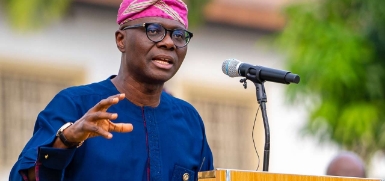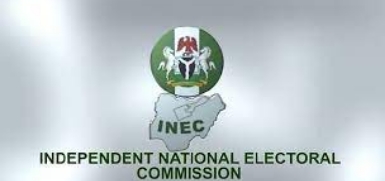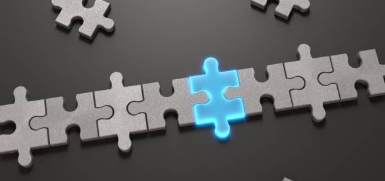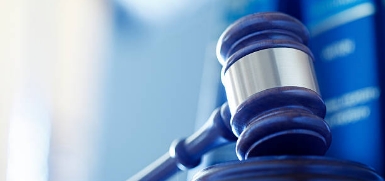According to ERLC by Jackson Thacker, digital authoritarianism is the way many leaders around the world wield the power of the internet and technology to gain or solidify control over the people. A more literal definition is given by Wikipedia who defined it as a state-led surveillance programme with Big data and a new form of credit scoring to influence the behaviour of citizens, companies and other institutions. Digital authoritarianism also known as techno-authoritarianism or IT-backed authoritarianism provides for a plethora of measures undertaken by the government to stifle the civic space and restrict the freedom of the people.
Digital authoritarianism has often been viewed as a threat to the basic freedom and rights of the people as enshrined in Article 19 of UDHR and Article 10 of the Human Rights Act which provides for the right to freedom of expression. It could include methods such as digital surveillance, social media taxes, the introduction of laws regulating media rights, arrests for online speeches, disinformation, internet shutdowns, identification for mobile sim registration and internet use. A cursory look at these and the true social reality of Nigeria may bring an even more vivid picture of digital authoritarianism to mind. A classical example is given with the recent Twitter ban in Nigeria. On June 4th, 2021, the Nigerian government announced the indefinite suspension of Twitter, two days after it deleted the president’s tweets of threat against a separationist group in the country for violating the company’s abusive behaviour policy. This seems to be the final stroke that broke the camel’s back. Prior to this event, it played an active role in the #endSARS rally enabling an unprecedented level of organisation and mobilization of the Nigerian youths agitating for the end of police brutality. The peaceful soon-to-be bloodbath gained most of its major supporters and affiliations online who even proffered the solution of bitcoin payments when the Nigerian government froze accounts to prevent wilful donations to this cause. Not so long after this, President Mohammadu Buhari was on his way to China to erect a firewall banning the Nigerian residents from twitter and citing the protection of the sovereignty and corporate existence of the country as his reason. For a country with a history of hostile relationship between its northern and southern parts as evidenced by the civil war and threats of succession, we all know better. It was this feud that led to the deletion of the tweet in which he threatened to deal with them ‘in the language they understand’.
The reality is that Nigeria is being haunted by the ghosts of her past. Not so far distant in the people’s mind though as far back as the 1980s, the infamous Protection Against False Accusations Decree popularly known as Decree 4 which provided for press censorship was enacted. Till today, it remains one of the most repressive decrees of the military juntas ever enacted. It witnessed the indiscriminate arrest of journalists for publishing stories that appeared offensive to the government. It seems that the Buhari government has something against press freedom because even more recently, in the first tenure, the hate speech bill was presented to the national assembly for enactment. It garnered strong opposition and severe criticism to the general public who saw it as an attempt to underbring their fundamental human right and press freedom.
This begs the question of the true situation of digital authoritarianism in Nigeria. The actions of the government have created a deep-rooted fear of digital gag. It has not been helped by the lender-borrower relationship with china who operate a state-controlled media featuring press censorship at its base and has also often been accused of economic and neo-colonial interest in Nigeria. Neither has it been helped by the reminiscent situation years ago in 1984 during the military era that witnessed thousand of deaths and emigration of journalists to save their lives. The reformed democrat may not be reformed after all. This acts as a clarion call to all Nigerians to be vigilant and watchful of their rights. Digital rights constitute an essential part of the fundamental human right as emphasized in chapter 4 section 39 of the 1999 Constitution of the Federal Republic of Nigeria as amended. The slow chipping as digital rights represses the growth of true democratism, a prerequisite for creating a conducive business atmosphere and better investment climate. It is on this ground that Jack Dorsey, CEO of Twitter chose Ghana over Nigeria as an African branch. This is despite the fact that Twitter users in Nigeria equated to 32 million, a number twice the population of Ghanaian internet users. He cited Ghana’s support of free speech, online freedom and open internet as its reason.
The current situation of digital authoritarianism in Nigeria still beggars belief. Nevertheless, the importance of the right to freedom of expression, civic space and online freedom cannot be overemphasized.
REFERENCES
WEBSITES
- Study on ‘Digital Authoritarianism’ threatening basic rights in Africa—www.reuters.com
- Global perspectives:Nigeria: A case study in the slow creep of authoritarianism—https://www.usrenewnews.org
- Nigeria: Digital Authoritarianism and the echoes of Decree 4—https://allafrica.com.stories
- KeepItOn.Nigeria’s Disturbing Move Towards Digital Authoritarianism—https://humanglemedia.com
- What is digital authoritarianism by Jason Thacker–https://jasonthacker:com
- Digital authoritarianism and the echoes of Decree 4 by Bámidélé Adémólá-Olátéjú–www.premiumtimesng.com
- Article 10: Freedom of Expression, Equality and Human Rights–https://www.equalityhumamrights.com
- UDHR-The United Nations–https://www.un.org







